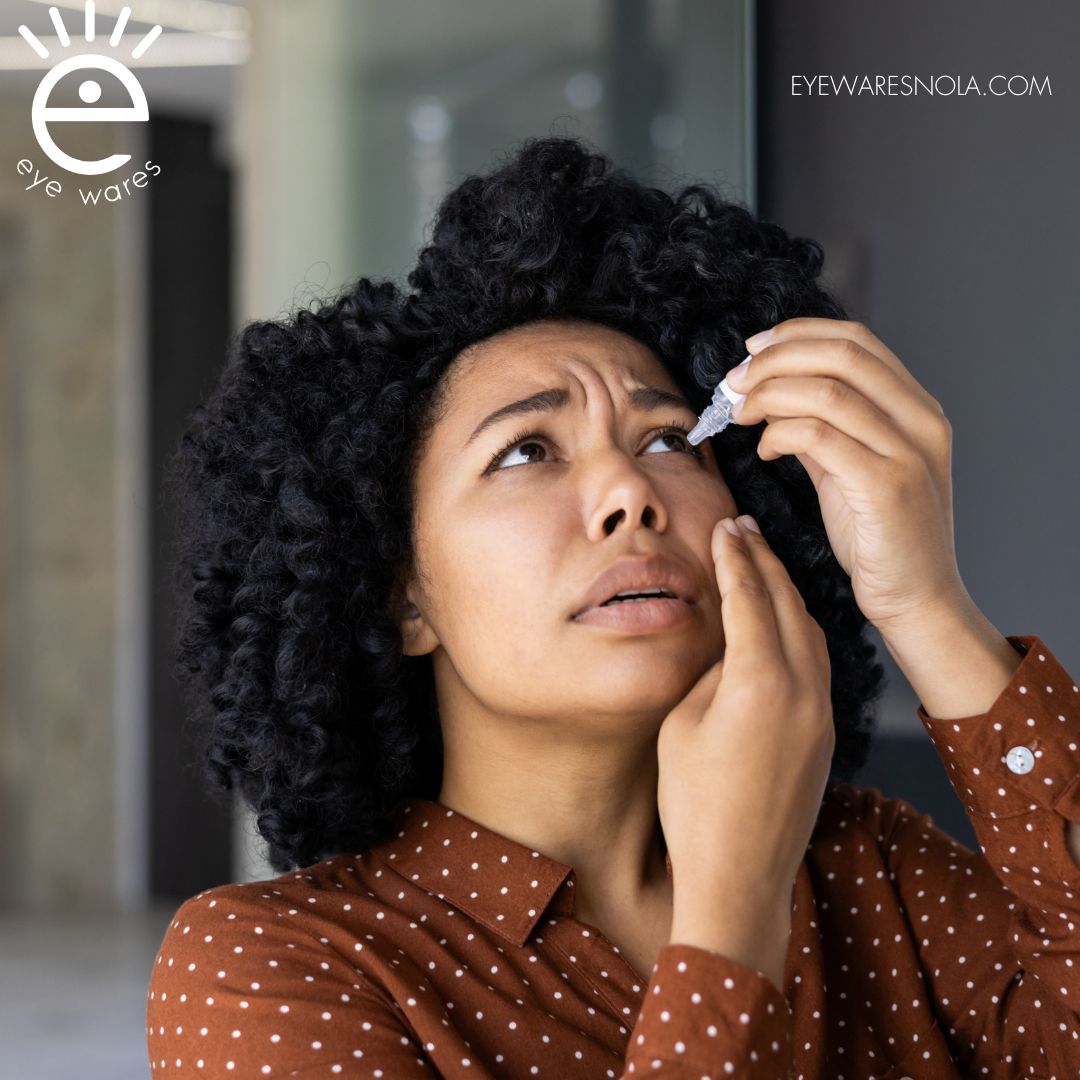Dry Eyes and Sleep Quality: How Are They Related?
Dry eyes are a common eye condition that causes discomfort and irritation for many people.
Coincidentally, many patients also report diminished sleep quality after developing dry eyes. The connection between the two is a cycle of causes and effects, a vicious circle that can be challenging to break.
Knowing how dry eyes can affect sleep quality can help people better manage their symptoms and improve their overall health.
What Are the Causes of Dry Eyes?
A healthy eye is perpetually moist. However, certain external conditions or underlying illnesses can cause the moisture in our eyes to evaporate excessively:
- Environmental Factors: Exposure to wind, smoke, or dry air can cause tears to evaporate quickly, leading to dry eyes.
- Screen Time: Prolonged use of computers, smartphones, and other digital devices can reduce blinking frequency.
- Aging: Tear production tends to decrease with age, making older adults more susceptible to dry eyes.
- Medications: Drying the eyes is a common side effect of ingesting certain medications, like antidepressants or decongestants.
- Medical Conditions: Conditions like Sjögren’s syndrome, rheumatoid arthritis, and diabetes can affect tear production and quality.
A small tweak in your routine or environment can improve your eye condition. However, consulting a professional is a must if you’re dealing with an eye-related illness.
Eye Health and Sleep Issues
The relationship between dry eyes and sleep quality is a vicious cycle. Poor sleep can exacerbate dry eye symptoms, and dry eyes can interfere with getting a good night’s sleep.
At night, tear production naturally decreases. This reduction can lead to significant discomfort and irritation for individuals with dry eyes, making it difficult to fall or stay asleep.
The discomfort caused by dry eyes can lead to frequent awakenings and difficulty falling back asleep. This disruption in the sleep cycle leads to low sleep quality, and an incomplete sleep cycle exacerbates dry eyes.
Some people may develop dry eyes from sleeping with their eyes open or having a condition like nocturnal lagophthalmos. This can happen because their eyes are exposed while they sleep. Sleeping with eyes open or having certain eyelid conditions can lead to dry eyes.
Treatment for Dry Eyes
Addressing dry eyes involves a combination of lifestyle changes, over-the-counter solutions, and medical treatments. Here are some common treatments:
- Artificial Tears: Over-the-counter artificial tears can provide temporary relief by lubricating the eyes. These are available in various formulations, so finding one that works best for you might require trial and error.
- Prescription Eye Drops: If over-the-counter solutions are ineffective, your provider might prescribe Restasis or Xiidra to replenish your eye’s moisture.
- Punctal Plugs: These tiny devices are inserted into the tear ducts to block drainage and keep tears on the eye’s surface longer.
- Omega-3 Fatty Acids: Dietary supplements containing omega-3 fatty acids can help improve tear quality and reduce inflammation.
- Moisture Chamber Glasses: These glasses help create a humid environment around the eyes, reducing tear evaporation.
At Eye Wares, we offer a comprehensive dry eye treatment plan that includes a combination of these treatments to target the root cause of your dry eyes. Our optometrists will work with you to develop a personalized treatment plan that fits your lifestyle and needs.
Eye Care Tips
You don’t need an established eye care routine to prevent your eyes from drying out. For most people, OTC or prescription eye drops get the job done, but those with chronic dry eyes may need a more comprehensive approach.
Here are some tips to mitigate the symptoms of dry eyes and improve sleep quality:
- Stay Hydrated: Keeping your body well hydrated prevents your eyes from drying.
- Limit Screen Time: Take regular breaks from screens to reduce eye strain and encourage blinking.
- Use a Humidifier: If you live in an area with arid air, using a humidifier can help keep the air moist and prevent your eyes from drying out.
- Wear Sunglasses: Wear sunglasses outdoors to protect your eyes from wind, dust, and sun exposure.
- Practice Good Sleep Hygiene: Maintain a regular sleep schedule, create a comfortable sleep environment, and avoid caffeine and electronic devices before bedtime to improve sleep quality.
- Use Eye Protection During Sleep: If you suffer from nocturnal lagophthalmos, consider using eye masks or moisture goggles to keep your eyes closed and hydrated during the night.
Better Eye Care for Better Sleep
Addressing dry eyes and improving sleep quality requires a holistic approach. Sleep disorders and eye symptoms aren’t mutually exclusive; treating one will improve the other. By understanding the causes and symptoms of dry eyes and their connection to sleep, you can take proactive steps to manage the condition and enhance your overall well-being.
At Eye Wares, our experts offer eye exams and personalized treatment for dry eyes. Our team provides a variety of services to meet your eye care needs.
We specialize in diagnosing and treating dry eyes. Our goal is to ensure your eyes are healthy and comfortable. If you’re in Greater New Orleans, visit our nearest branch to learn about our services and make an appointment.


